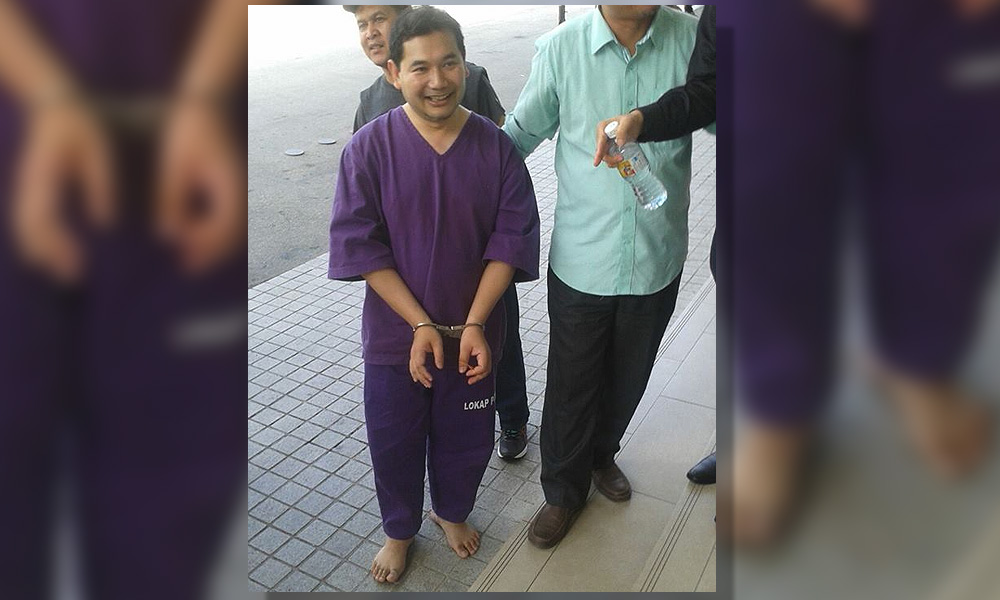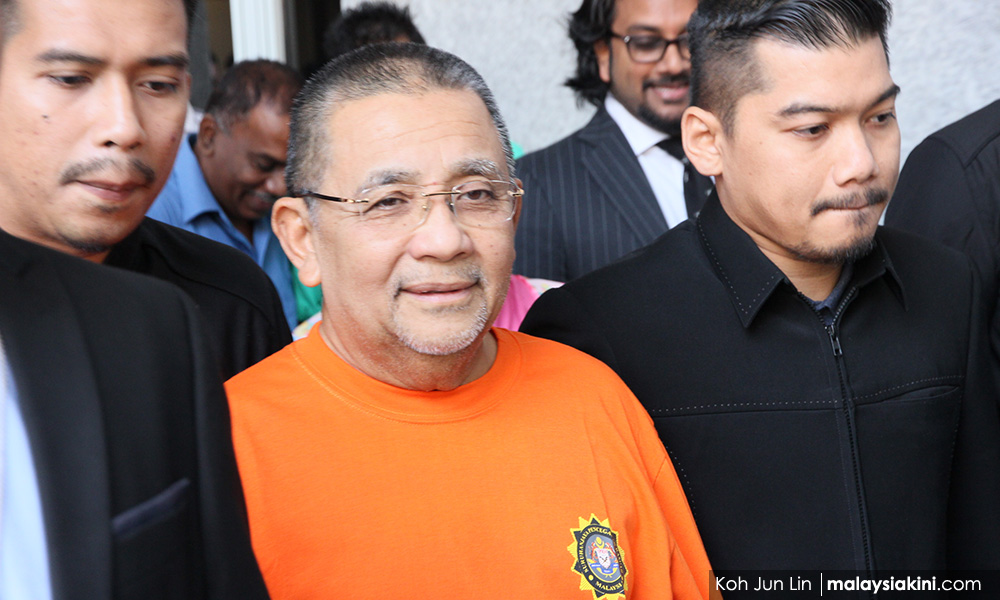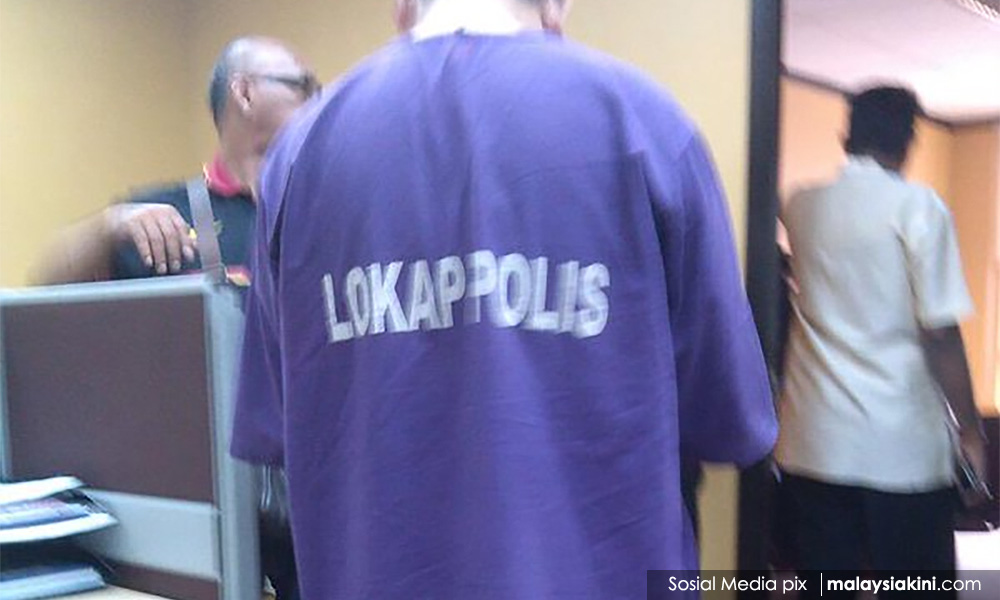
QUESTION TIME | Rather public arrests and requests to magistrates for continued remand of suspected offenders, and differential treatment of those detained raise questions aplenty over abuse of power through the humiliation of those who do not even have charges pressed against them.
There seem to be no set rules in terms of the attire they are in, whether they are handcuffed or not, and whether they are physically escorted by arresting officers when they are brought to the magistrate’s court for an extension of their remand.
And then there is the question of whether they should even be remanded in the first place and whether there is an abuse of due process when the police, the MACC or other bodies investigate cases.
Thus many people get remanded for cases, thrown into the lock-up, given lock-up clothes to wear, and appear in lock-up clothes when the remand hearing happens, and if it is a prominent case or person, have their photographs taken under terribly demeaning circumstances in a glare of unwanted publicity.
The pictures and video clips get posted in newspapers, news websites, appear on TV and stay there in digital format for all to see for more or less posterity. And here’s the rub - sometimes these people don’t even get charged in court at all.
Thus you see MPs for instance - usually opposition ones - dragged around in handcuffs, in lock-up clothes and without slippers in full public view. The picture that comes to mind immediately is that of PKR MP Rafizi Ramli in police custody in March 2015, wearing purple lock-up clothes, handcuffed and in bare feet.
Now if police can do that to an elected representative of the people who had not then been charged with a specific crime, they can do that to anybody. Surely Rafizi was not going to run away - why could he not have been permitted to wear shoes and his work clothes in public without handcuffs?
Even if the law does not specifically prevent instances like this, shouldn’t there be a consideration for the axiom that a person is not guilty until proven to be so in a court of law? And shouldn’t there be proper procedures to treat suspects and witnesses with some amount of respect and decorum, unless they have shown themselves to be violent and dangerous?

There have been many other cases, with some of the most public being those handled by MACC involving former Felda chairperson Isa Samad and former minister Shafie Apdal, both of whom were paraded in lock-up clothes.
Surely public humiliation of people, some of whom may only be witnesses and not even remotely connected with the crime, in that manner is hardly justified and denotes an abuse of power by the police and other investigating authorities.
Paraded around like circus animals
The relevant law which governs arrest and remand pending investigation is the Criminal Procedure Code and this article on the Malaysian Bar website sets down the procedures for arrests and remand under the CPC.
Essentially, Section 117 of the CPC sets out the conditions for remand if the police cannot finish their investigations within 24 hours. Depending on the severity of the offence, based on the number of years the person can be imprisoned for the offence and whether there is a death penalty involved, persons can be detained for up to 14 days, most being less than seven days.
If police can’t finish investigations within 24 hours, they must seek approval from a magistrate for a longer detention period. But the person has legal right to be represented during the remand hearing.

Presumably, detention is necessary to prevent the person involved from destroying/tampering with evidence and influencing witnesses. If that is indeed the main reason, then there may be no cause to detain a person, especially in a lock-up, to continue with investigations for a lot of those investigated may not have the opportunity to interfere with investigations even if they were not detained.
But anecdotal evidence indicates that magistrates are more often than not prepared to give remand orders at the behest of the police and investigating authorities. So we have situations where even those involved in traffic accidents are sometimes remanded for investigations which surely indicates an abuse of process.
Also, there are those who may eventually be only witnesses but even these people are often slapped with remand orders during the investigation process which is definitely unfair and excessive.
Even when there is a need to remand, and this can be justified by the peculiar circumstances of the case, there should be regulations that allow those appearing for remand hearings to appear in their choice of
appropriate clothing and to be spared handcuffs unless they are likely to be dangerous and violent criminals.
appropriate clothing and to be spared handcuffs unless they are likely to be dangerous and violent criminals.
The current system where those who are being investigated are paraded around like circus animals during arrest, detention and remand hearings is extremely humiliating and demeaning, and makes nonsense of the axiom innocent until proven guilty.
These are not standards of civilised behaviour on the part of those who are supposed to be administering the law fairly, impartially and without fear or favour to anyone. Instead, they reflect extrajudicial efforts to shame and disgrace those who have not even been charged yet for the offences that they may or may not have committed.
P GUNASEGARAM says many crimes have been committed by those who believe that the end justifies the means.
E-mail: t.p.guna@gmail.com -Mkini
E-mail: t.p.guna@gmail.com -Mkini



No comments:
Post a Comment
Note: Only a member of this blog may post a comment.